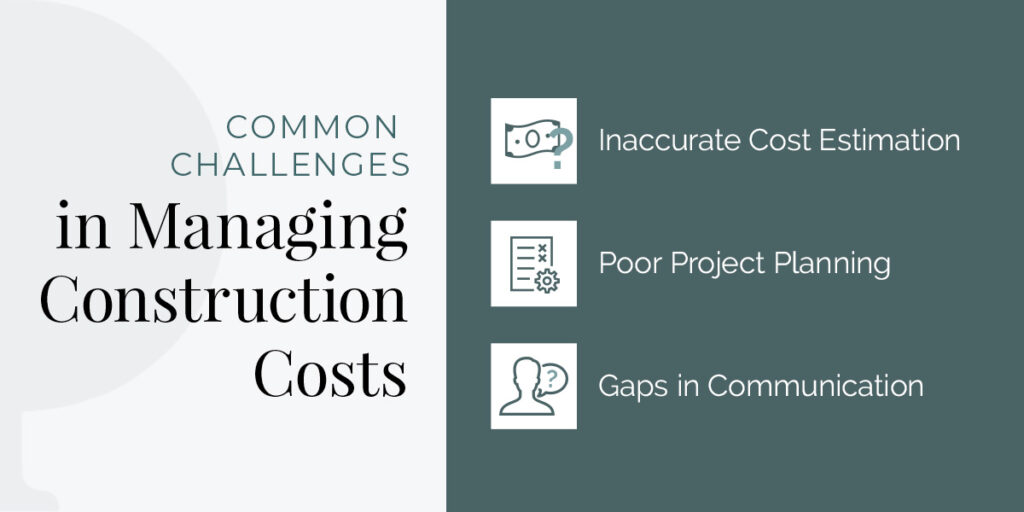
Construction can be cost-intensive. Rising materials, equipment and labor prices, coupled with complex regulations, make budget management challenging for construction companies. Cost control allows you to plan and manage budgets. Through strategies like effective tax planning and preparation, construction companies can save money and increase their cash flow while adhering to the laws.
Explore the role of cost management in building construction and some vital tips. Polston Tax can help you implement proper tax practices to increase profitability.
Cost control in building construction is managing and regulating expenses throughout a construction project. The primary goal is to ensure the project is completed within the approved budget while maintaining quality and adhering to timelines. There are many components to effective cost control, such as:
Effective cost-control practices can result in several benefits, including:
Ensuring that the project stays within its budget directly impacts the profit margin, helping you achieve better financial results. Identifying cost-saving areas without compromising quality can increase profits.
Cost control allows for better forecasting of future expenses, which aids in financial planning and resource allocation. Keeping costs in check helps maintain a healthy cash flow. It ensures that funds are available for ongoing project needs.
Regularly monitoring costs allows management to hold teams accountable for their spending. This attribute can foster a culture of responsibility. Moreover, identifying and analyzing variances between budgeted and actual costs helps pinpoint issues and informs corrective actions.
Cost control practices can help identify potential financial risks early, allowing for timely interventions. And with a structured approach to managing changes, you can reduce unexpected costs associated with project alterations.
Demonstrating financial competence builds trust. It can strengthen relationships with clients and partners, potentially leading to positive feedback and recommendations for future projects.
Contractors that excel in cost control can submit competitive bids while maintaining profitability. A track record of delivering projects on time and within budget can enhance your company’s reputation in the industry.
Cost management is crucial, but you may encounter challenges. Here are some common examples:

Estimating costs accurately at the outset is often challenging due to fluctuating material prices, labor costs and unforeseen project complexities. This issue can lead to budget overruns, necessitating additional funding or budget cuts. Unless properly handled, the project can stall, and the company can lose significant amounts of money.
Estimating costs is one thing, but managing resources is another. Insufficient planning can result in inadequate resource allocation, leading to delays and potential disruptions. The company may incur additional costs in labor and equipment rentals or substantial tax liability.
Miscommunication among team members, subcontractors and clients can lead to misunderstandings. For example, there could conflicts regarding expectations, timelines and costs. This gap can result in errors that require costly rework, delays and reduced morale. Ultimately, you may face financial and legal hurdles.
Tax preparation and planning can be challenging, especially in complex construction projects. Common examples include the following:
Incorrectly classifying workers as independent contractors instead of employees and vice versa can lead to tax compliance issues. Noncompliance with tax laws can result in penalties, back taxes and additional liabilities. This can inflate project costs and strain cash flow.
Contracts may not clearly outline tax responsibilities, leading to confusion over who is liable to pay specific taxes on materials and services. This ambiguity can result in disputes that delay payments and increase costs. You may incur unexpected liabilities, which can affect cash flow.
Construction projects may qualify for various tax incentives, credits or deductions. Classic examples are the federal energy efficiency and rehabilitation or historic preservation credits. However, some companies are unaware of these opportunities or do not understand them. Not taking advantage of available tax incentives can lead to missed savings, impacting your finances.
Insufficient or inaccurate documentation of expenses, payments and tax-related transactions can complicate tax reporting and compliance. This practice can create difficulties during audits, leading to potential fines and increased scrutiny from the Internal Revenue Service (IRS) or state taxing entity. You may encounter challenges substantiating deductions and credits.
Projects that span multiple jurisdictions can face varying tax regulations and tax rates. Navigating these complexities can lead to unintentional noncompliance and increased costs. You may miscalculate your tax liabilities, resulting in either overpayment or underpayment. Both can strain the project’s budget.
Implementing best practices can help you manage expenses in construction projects. Here are some tips to consider:
Create a detailed budget that includes all project costs, such as labor, materials, equipment and overhead. This plan will serve as a baseline for monitoring expenses. Remember to leverage historical data from previous projects to improve cost estimation and budgeting accuracy.
Adopt lean construction techniques to eliminate waste and improve workflow efficiency. This strategy can help reduce costs. Foster a culture of continuous improvement by encouraging team members to identify areas for cost reduction and efficiency gains.
Negotiate bulk purchasing agreements with suppliers to secure lower prices for materials. Also, build relationships with multiple suppliers so you have a backup as needed. The goal is to get quality items at an affordable rate.
Learn the federal, state and local tax laws to ensure compliance and identify potential savings opportunities. Consider partnering with professionals to help navigate the complexities. For instance, they can explain your tax obligations and help maximize deductions and credits.
Polston Tax provides efficient tax solutions to various businesses in the construction industry. Our services include the following:
Polston Tax makes tangible differences in the financial health of commercial construction companies, which has earned us a positive reputation in the industry.
Do you want to keep your construction project within budget? Cost control practices, such as tax planning and preparation solutions, can make a difference. At Polston Tax, we assist construction companies like yours navigate complex tax regulations. Our strategies can help you maximize savings while complying with the laws.
Contact us today for a consultation and discover how our professionals can enhance your cost-control measures through efficient tax strategies. Together, we can optimize your financial health and set your projects up for success.
